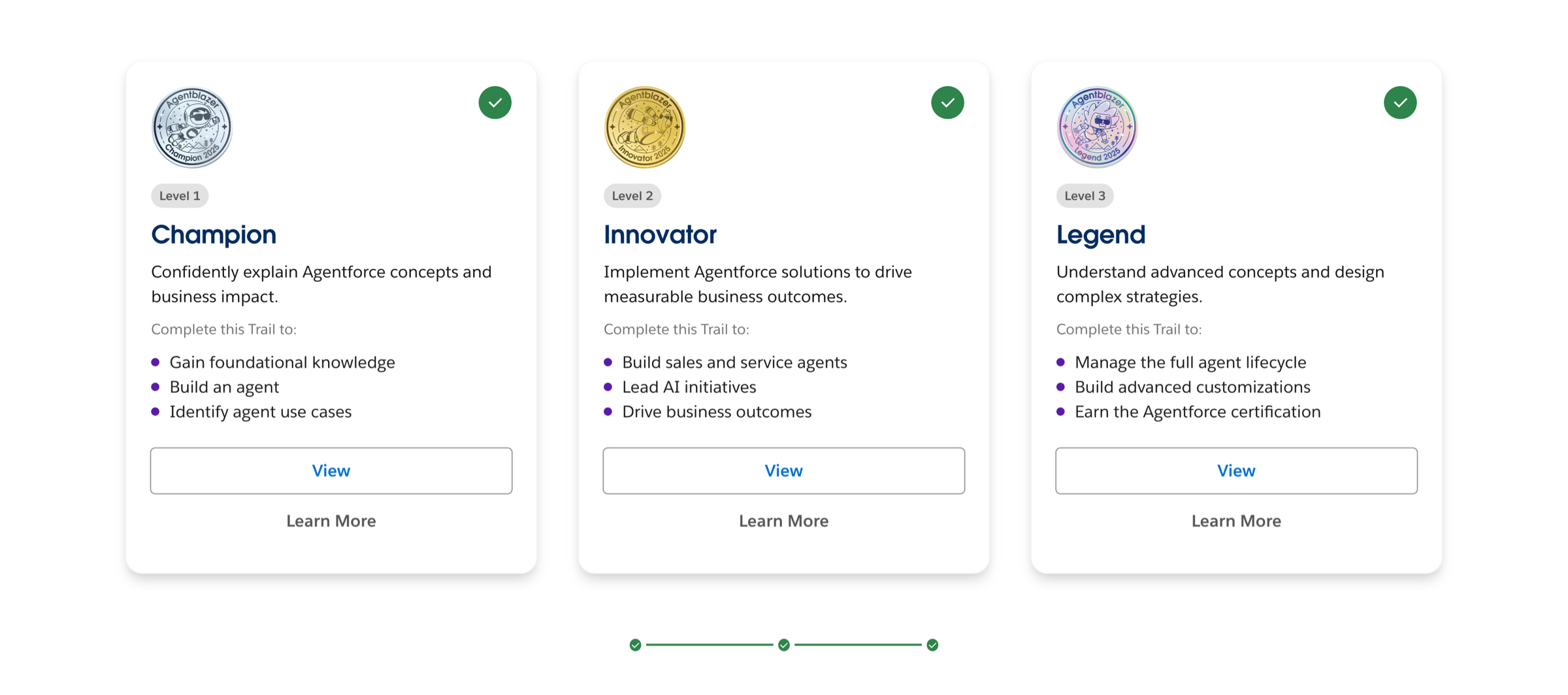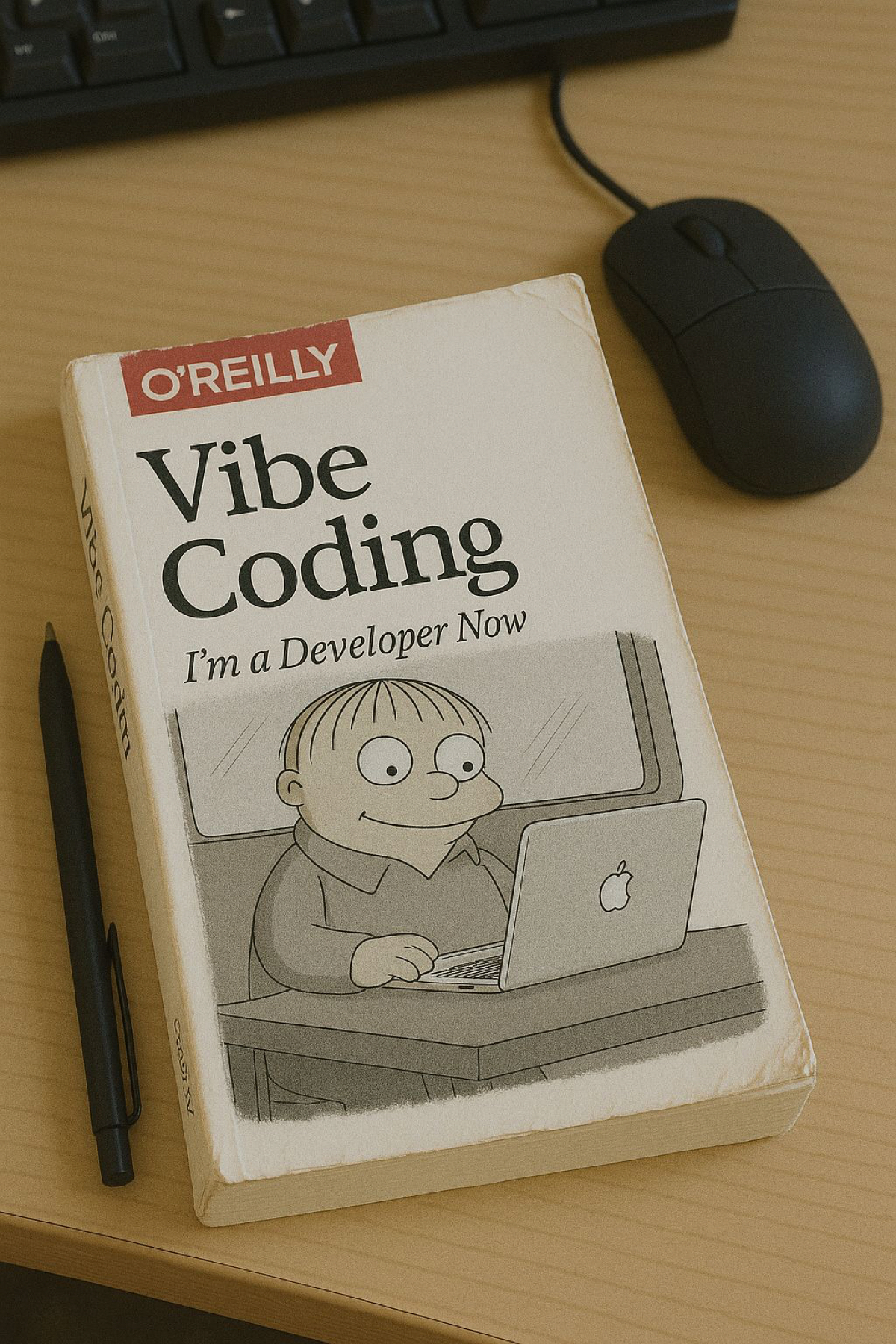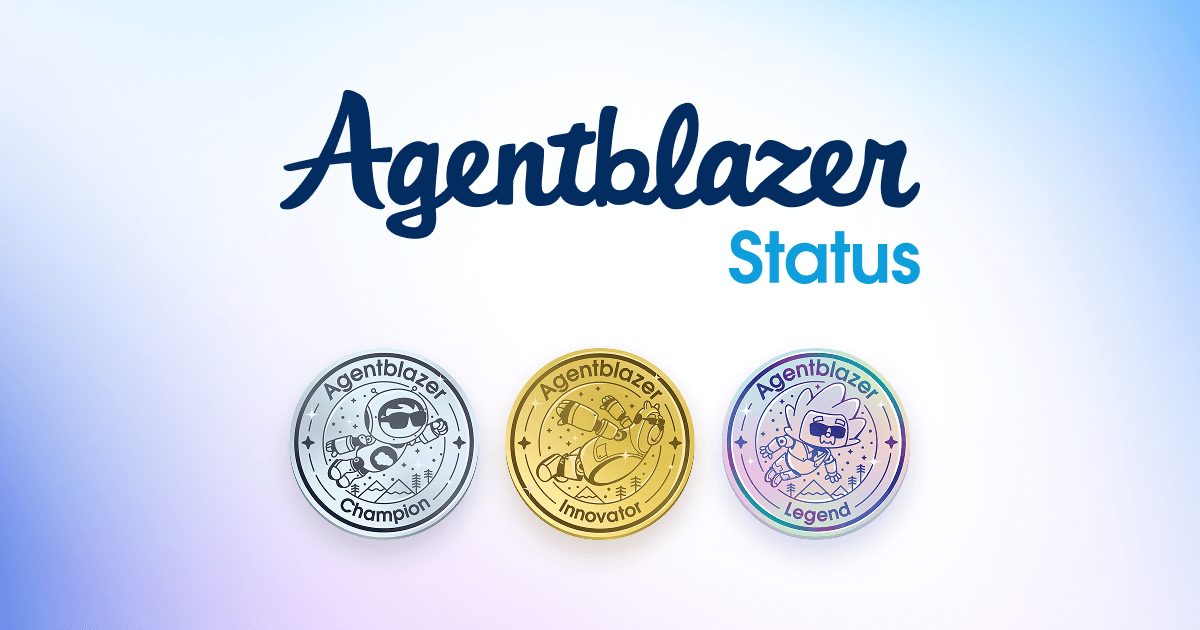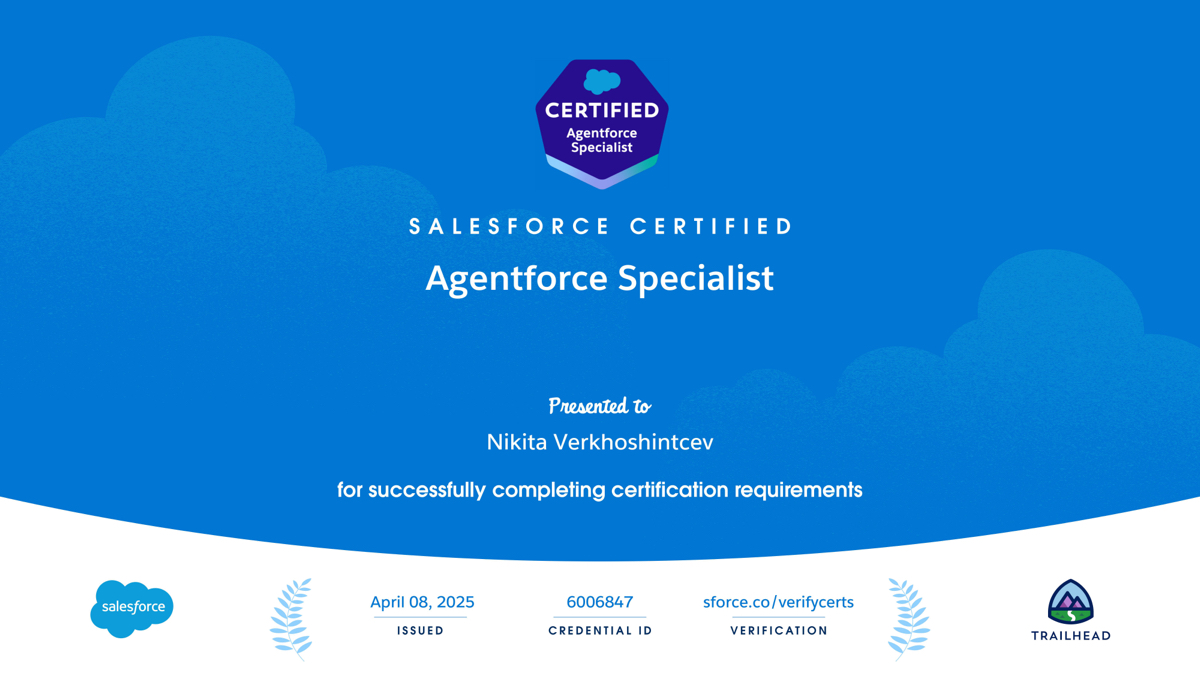I'm sceptical about AI, but I've dived deep into the Agentforce and just recently obtained the Legend status on the Trailhead.
As a result, I gained a deeper understanding of the industry, including real-world use cases and hands-on experience with the tools.
Below is my journey, motivation, what I found interesting, and whether it was worth it.

Why scepticism?
Here are some of my thoughts and reflections about the AI industry in general.
It could be a whole separate article on its own, but I wanted to outline some of the points that stuck in my head.
Feel free to skip it if you're not interested.
When I say I'm skeptical, I mean realistic. Because we are not yet at the stage everyone claims we are, and the transformation will take years.
I also struggled to understand the practical use cases and the return on investment.
Over the past several years, numerous companies have begun investing in AI.
If you check any media, the words "AI" and "Agentic" are everywhere ad nauseam.
People and companies experiment with the technologies and report successes promising huge benefits, but often including trivial use cases.
At this point, you start asking yourself: "Why does everything have to be agentic?"
Looking at simple cases, it is much easier and efficient to write a dedicated script rather than creating an agent that will try to understand what you want from the context, so you don't have to spend computing resources and money.
Many also started vibe-coding, so you don't have to write code and don't need to know software development.

Some even argue that the new programming language is "English."
I would prefer it not to be English, and there is a reason why we have programming languages, because we can provide deterministic instructions for the programs.
You always know that for the same input, you will determine and get the same output.
There are good arguments that writing code has never been a problem per se, but defining the requirements and coming up with a solution are.
To be able to vibe-code, you need to know software development, including security and authentication mechanisms, so you can ask AI to account for them.
Otherwise, it can skip a lot of the requirements.
A bit off-topic, but there is also a similar problem with modern education. We no longer need to learn much, especially the basics, since Google and ChatGPT are always at our disposal. However, the issue is that we can't search for things that we don't know exist. Similarly, people often do not ask AI about web security because they are not aware of its existence.
Agentblazer Champion Level: Introduction to the AI
As I mentioned earlier, many companies began experimenting with AI, and Salesforce encouraged everyone to adopt Agentforce.
I know consulting companies that have decided to focus on Agentforce, offering bonuses for bringing in leads to schedule the calls and discuss Agentforce with them.
As much as I was sceptical about it, there is an evident demand for those skills as the industry is relatively new.
Everyone is trying to make it work. Everything in the Salesforce ecosystem was about it, and a few customers and partners had already asked me about Agentforce.
It was the time Salesforce announced the Agentblazer trail on Trailhead, so I decided to dive deep, investing some of my time to try to learn about the topic and see what it's all about.

The first part mainly focused on the AI industry in general, its history, what LLMs are, trust layers, etc.
It was interesting and helped me gain a better understanding of the industry, as I hadn't checked it previously.
Agentblazer Innovator Level: Hands-on Experience
The following modules focus on Agentforce capabilities and work directly with AI Agents.
The examples were fascinating, and I can see the "wow effect" and can relate that sometimes the outcome feels like magic.
It primarily focused on specific details for setting up prompt templates, configuring the Data Cloud, building agents, and creating topics and actions.
I especially liked that you can integrate Agents and Flows to automate tasks and define the context for them to rely on.
When I walked through the examples and did those Superbadge challenges, I always caught myself on the use cases that I had and where I could implement them.
For example, several months ago, I had a quick chat with one of the largest consultancies, where they had an interesting use case for a big customer in the financial industry.
The challenge they were trying to solve was the ability to review email templates.
Due to the large scale and thousands of partners, they sought a solution that could detect specific phrases, such as "100% guarantee," and flag those templates for review, otherwise approving them automatically.
Upon completing the Agentforce Innovator level, I immediately recognized a problem that could be solved using the agents and my newly acquired knowledge.
By the way, if you have a similar challenge in mind or think that's a valid use case, let's talk!
Overall, the modules weren't too challenging. I didn't face any problems when following the instructions along.
They provided a good introduction to the Agentforce tools and their configuration.
At the same time, after passing a second module, Salesforce introduced changes to its AI-related certificates, making the first attempt free.
I then scheduled the Agentforce Specialist exam straight after.

I don't recall anything specific about the exam itself, so after passing the first two levels and going through the module, you should be able to obtain the certificate without an issue.
Agentblazer Legend Level: Advanced Usage
The final Legend level wasn't available back then, so I took a pause and focused on other tasks in the meantime, as I don't work with Agentforce in my day-to-day operations and mainly focus on custom implementations and Lightning Web Components.
Recently, Salesforce announced the final level of the Agentblazer trail, which focuses on advanced usage of Agentforce.
It required the Agentforce Specialist certification that I already had, so I only needed to go through the modules and do a couple of Superbadges.
What immediately caught my eye were the topics that this level had, such as Data Cloud, testing, security, Slack integration, DX, and Apex.
These are precisely the ones I was interested in the most.
Throughout my career in the Salesforce ecosystem, I've primarily focused on custom implementations, ranging from interfaces built with Angular and React to managed packages and off-platform solutions utilizing Heroku and AWS.
I'm currently diving deep into Heroku because they're making a comeback with new AI-related features and an incredible AppLink, which is why I consider Heroku over AWS for future projects.
It's off-topic, but the point is that to support advanced usages with Heroku, it's good to learn more about the topics mentioned at this level.
The Data Cloud is in high demand right now, and as many point out, to benefit from the Agentforce, you need solid data, which, unfortunately, many organizations lack.
The authentication and security are crucial for the customer-facing communication, and if you want your agents to support customer-specific actions.
Otherwise, using Apex and Agentforce API programmatically was extremely interesting, but lacked content.
Unfortunately, the modules I was most interested in were relatively short and didn't provide many use cases.
Although that's cool that you can build LWCs and rely on the EinsteinLLM class.
Some of the instructions on the Superbadge challenges were unclear, and the SF CLI commands in the modules were outdated.
However, I liked the module. It didn't take too much time to complete if you have all the prerequisites.
Conclusion
I enjoy studying and learning new things, and this has been a fascinating journey.
It helped me to understand the industry and use cases better. I can see the benefits for the businesses. However, I'm still not entirely convinced about the ROI.
Salesforce has created a good set of tools that work quite nicely together, and it has been a great experience to get hands-on experience.
I'm not sure if I will have the opportunity to work with the Agentforce tools in a real production environment in the near future, but it's good to have knowledge under my belt of how to get around with those.
In terms of a question, if it is worth it, I haven't yet benefited from it and mostly did it for myself.
However, who knows? Companies are still trying to implement Agentforce, and many consultancies have announced that they have made a strategic decision to focus on Agentforce.
There are not so many specialists yet, so it might be good to be one of the pioneers.
If you are interested in the AI industry and have the time, I recommend exploring the Agentblazer path. It has been fun!

Nikita Verkhoshintcev
Senior Salesforce Technical Architect & Developer
I'm a senior Salesforce technical architect and developer, specializing in Experience Cloud, managed packages, and custom implementations with AWS and Heroku. I have extensive front-end engineering experience and have worked as an independent contractor since 2016. My goal is to build highly interactive, efficient, and reliable systems within the Salesforce platform. Typically, companies contact me when a complex implementation is required. I'm always open to collaboration, so please don't hesitate to reach out!
